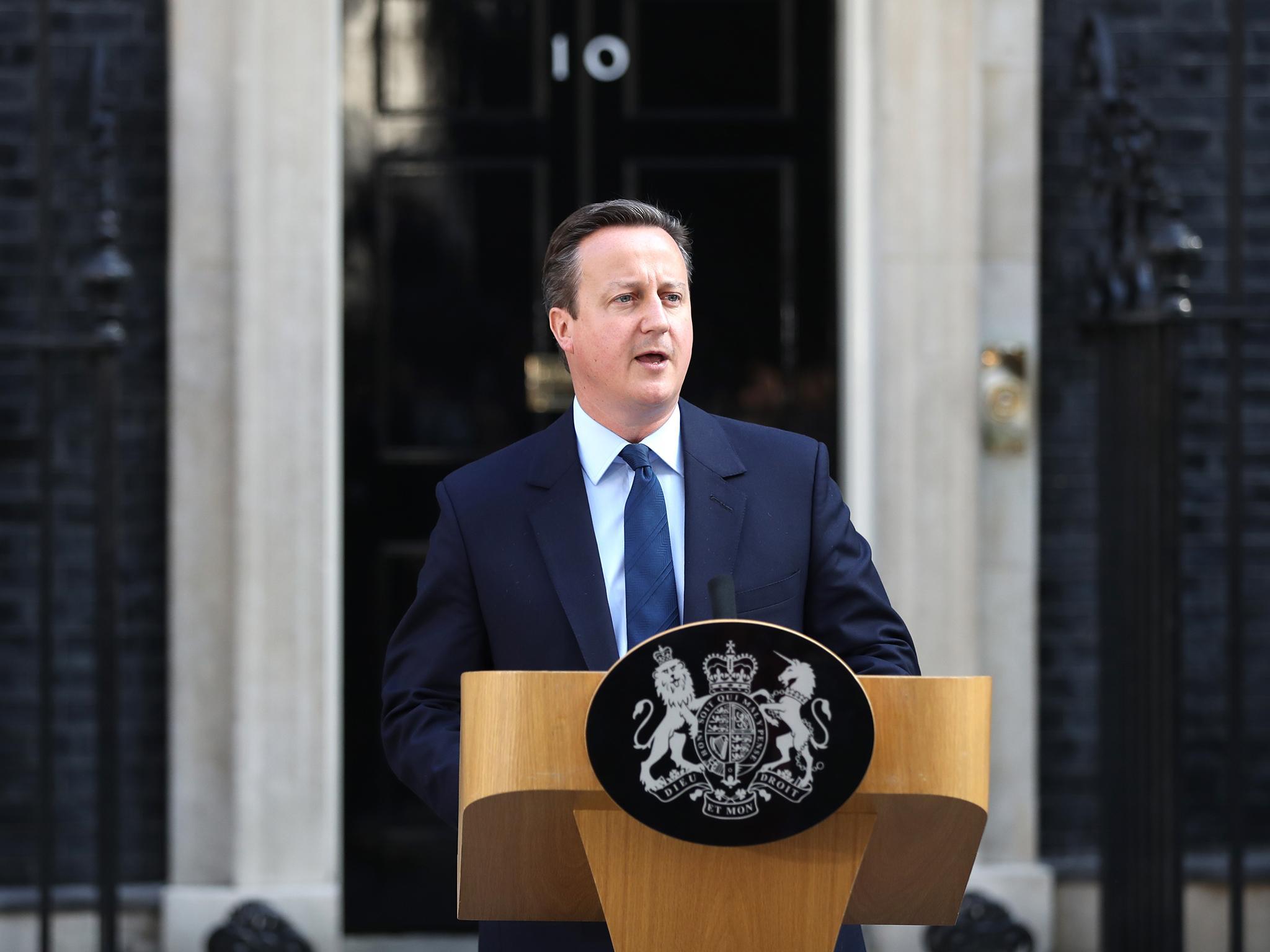David Cameron's first words when he realised he had lost EU referendum
‘All political lives end in failure’

“All political lives end in failure.” These were the words of David Cameron when he realised he had lost the EU referendum in the early hours of 24 June, according to his biographer Anthony Seldon.
The night before Mr Cameron made his resignation speech, the mood of the Prime Minister and his team swung from jubilant to morose as results came in and it became clear the Leave campaign had won.
And despite pleas from some of his closest allies, including George Osborne, to stay on as Prime Minister in the case of a Brexit win, Mr Cameron decided before the first results were announced that he would quit if he lost the referendum.
In an extract from an updated version of Mr Seldon’s biography of Mr Cameron published in The Times, the Prime Minister is quoted telling cabinet office minister Matthew Hancock “It’s not good, is it?” at about 3:30am, when his defeat became apparent.
“I’m going to have to go,” said Mr Cameron. “I don’t want to lead a Government where I don’t agree with its policy.”
Previously that evening, Oliver Letwin, the Prime Minister’s troubleshooter, had advised him to stay for the stability of the country, wrote Mr Seldon.
Mr Osborne, the Chancellor of the Exchequer, said Mr Cameron should only stay if he was prepared to fight, while communications director Craig Oliver said he should avoid appearing to “cling on” and leave, continuing his duties as Prime Minister during the leadership contest.

As the first results came in from Newcastle and Sunderland just after midnight and were worse for the Remain camp than expected, “a shudder passed through the group,” wrote Mr Seldon.
As other results were announced, showing a clear tendency towards Britain leaving the EU, Mr Cameron called a meeting in his study and made his intentions to resign clear.
“All political lives end in failure,” he told them.
The words are a quote from Enoch Powell, the Conservative politician best known for his infamous anti-immigration “rivers of blood” speech in the 60s.
In a 1977 biography of Joseph Chamberlain, Powell wrote: “All political lives, unless they are cut off in midstream at a happy juncture, end in failure, because that is the nature of politics and of all human affairs.”
Since Mr Cameron's resignation, Theresa May, Michael Gove and pro-Brexit Andrea Leadsom have announced their intentions to stand for leader of the Conservative Party.
Work and Pensions Secretary Stephen Crabb and MP Liam Fox are also in the running.
On Wednesday, in the first Cabinet meeting since the Brexit vote and his resignation, Mr Cameron ruled out a second referendum on Britain’s EU membership, saying it was “not remotely on the cards”.
Join our commenting forum
Join thought-provoking conversations, follow other Independent readers and see their replies
Comments
Bookmark popover
Removed from bookmarks